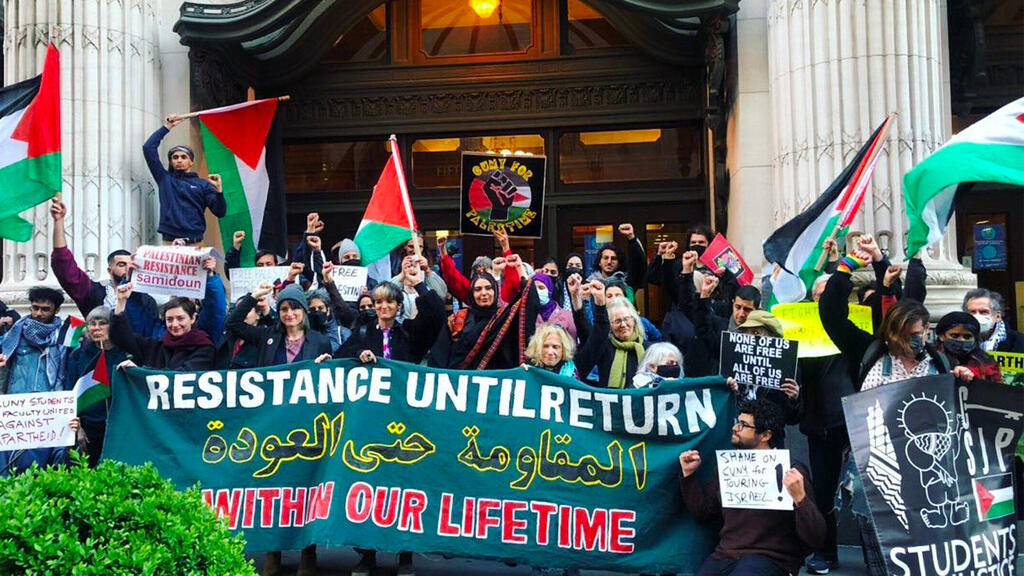Getting your Trinity Audio player ready...
The Professional Staff Congress (PSC), the union representing over 30,000 faculty and staff at the City University of New York (CUNY), passed a resolution to divest its union funds from Israeli companies and government bonds.
The resolution approved late last week narrowly passed with 73 votes in favor and 70 against, reflecting the contentious nature of the decision. The union also recommended that the Teachers Retirement System (TRS), which manages over $100 million in pension investments tied to Israeli entities, adopt a similar policy.
Proponents of the resolution described the move as a stand against what they termed Israel’s "apartheid regime" and its actions in Gaza and the West Bank. The resolution's supporters emphasized solidarity with Palestinian workers and students and cited international calls for labor unions to oppose institutional complicity in Israeli policies. “This decision marks an important step toward aligning our investments with our values,” stated one delegate. They argued that divestment underscores the union’s commitment to social justice and international solidarity.
Since October 7, CUNY has been a focal point for student-led activism on this issue, with protests and solidarity campaigns calling for institutional accountability and support for Palestinian rights. Jewish groups have expressed concerns about rising antisemitism on college campuses and have accused CUNY of failing to adequately address these issues. Critics argue that framing Israel’s actions in terms of "apartheid" and "genocide" is inflammatory and ignores the complexities of the conflict. They contend that such rhetoric can contribute to a hostile environment for Jewish students and faculty.
The resolution has also faced significant criticism within the union itself. Opponents expressed concerns that such a divisive stance could undermine unity among members and open the union to legal challenges. Historically, the PSC leadership has been cautious about taking explicit positions on the Israeli-Palestinian conflict, fearing potential backlash. This hesitation was reflected in the narrow margin of the vote, with several delegates warning that the move might alienate members or distract from the union's core mission of advocating for labor rights and educational resources.
“This decision risks fracturing our union at a time when solidarity is more important than ever," one delegate who opposed the resolution said. "Our focus should remain on the issues directly impacting our members, not on divisive international politics.”
2 View gallery


CUNY graduating student Fatima Mohammed's address at graduation called for a 'revolution' and an 'end to Zionism'
(Photo: Twitter)
They have also pointed to past instances where political resolutions led to membership disputes and legal battles, including a lawsuit following the union's 2021 resolution to discuss boycott, divestment and sanctions (BDS) initiatives. That case, which argued that members should not be compelled to support positions contrary to their beliefs, nearly reached the U.S. Supreme Court.
Get the Ynetnews app on your smartphone: Google Play: https://bit.ly/4eJ37pE | Apple App Store: https://bit.ly/3ZL7iNv
The resolution has also drawn legal scrutiny. On Tuesday, a complaint was filed with the New York State Division of Human Rights, alleging that the PSC-CUNY’s divestment policy constitutes a discriminatory boycott in violation of New York Executive Law. The complaint, submitted on behalf of Zionist Jewish and Israeli faculty members, argues that the union’s adoption of BDS policies discriminates against faculty based on their creed and national origin.
According to the complaint, the union’s decision effectively excludes Zionist Jewish and Israeli faculty members from certain research grants and collaboration opportunities. It further asserts that the boycott prevents faculty members from engaging in academic work with Israeli institutions and scholars, thereby institutionalizing discrimination within the university system.
“The PSC-CUNY has made abundantly clear that it does not view Zionist Jews or Israelis to be protected classes and has abandoned their sacrosanct Duty of Fair Representation to these groups,” the complaint states.



